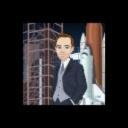Yahoo Answers is shutting down on May 4th, 2021 (Eastern Time) and the Yahoo Answers website is now in read-only mode. There will be no changes to other Yahoo properties or services, or your Yahoo account. You can find more information about the Yahoo Answers shutdown and how to download your data on this help page.
What was outside the universe just after it formed?
So many articles state: The universe was xxx in size after 1 second or even after 1 nanosecond. The sizes vary from meters to light-years, at least according to my source. Now this information, which comes from a reasonable scientific site, calls for two interesting questions:
- Since it had a 'size', it also means it had a perimeter, and this begs the question: What was outside of this perimeter?
- Also, if you ask today, where is the center of the Universe, all scientists say, there is no center. How can there be no center if the universe had specific sizes just after the Big Bang, this is conflicting information.
Source: https://phys.org/news/2018-10-big-bangan-eyewitnes...
So many people avoid those statements made by scientists that the universe was xx in size after xx time after the Big Bang. "Size", means limitation. Don't talk about Earth that has no edge but still is unlimited, if you keep walking. But on Earth we still can go up. So if we scale this to the Universe where is the 'up' part in the universe? Also don't talk the observable universe, because the Big Bang was the creation of everything, including the non-observable universe.
Loose from the question itself I believe that the universe and space are two separate entities. The universe was always there, even if it had no single property whatsoever, or a property we don't understand. Space is like and oil spill in the ocean, but expanding and later on collapsing, while the universe itself stays put. I believe space is finite and it ends somewhere, to a point you can't go further. We humans need space, so you can't go outside it.
17 Answers
- Adullah MLv 73 months ago
Your speculation of universe is close to the truth as I have ever heard. Universe is as if a basket that being filled in by energy, masses, space and time , then with out these four entities their would be no point of having universe . Mind you , since the time dimension of universe is having limited purposes , then universe is also having a limited size ,being as if place on surrounding space of unknown dimension. So how can any limited dimension can fathom the unlimited dimensions that is why the Intelligent Designer of both limitation and non-limitation of all dimensions ,then is the sole controller of all the created things , both inside and out side of the universe . How can we imagine of a soul of human being, which is immortal , being placed inside a mortal body. This is the closes analogy of the limitation of universe being placed inside the unlimited space of the radiant of the Creator.
- Anonymous4 months ago
GOD WAS. Don't you kinow anything snowwie888? tsk!
- ?Lv 54 months ago
It's easy to duck and dive around the basic thrust of your question ,but in reality , there are only two honest answers.
Either the universe, when it formed, was the creation of existence itself -- that there is no concept of existence ,either before or "outside" of our universe .
-- Or ,our "universe" formed within ,or from, a prior existing (infinite) universe -- at which point, the origin of the universe becomes the "it's turtles all the way down answer "
- Anonymous4 months ago
That's like asking what's further north than north pole z
. . . . . . . . . .
, , , , , , , , , ,
- jeffdanielkLv 44 months ago
Don't confuse the whole universe with the visible universe. 1 nanosec after the Big Bang, what is now the part of the universe we can see was a small sphere. There was lots more space beyond it.
The center of your observable universe is where you are. You see 46 billion light years in all directions. But the entire universe has no center.
You said if the entire universe has a size, it must have a perimeter boundary. This is not true. It could be finite but unbounded. The surface of the earth is finite, it has a size, a circumference and area, but no edge.
- 4 months ago
No, it doesn't "beg" that question. It raises or suggests that question. To "beg the question" means something entirely different from what you mean here. Look it up.
- ?Lv 74 months ago
Let me emphasize what @Morningfox said. All ‘size’ descriptions relate to the OBSERVABLE universe. What is outside the observable universe is more universe - we are simply causally disconnected from it.
Every point in spacetime - assuming isotropic expansion - sees itself as the center of its observable universe.
All evidence point to the universe having zero curvature which implies an infinite universe. An infinite universe presents no problem to general relativity since it’s a change in the INTERNAL scale factor that IS the expansion of the universe.
As to what’s outside, again turning to general relativity, it does not require an outside to exist. General relativity refers to the 4 spacetime dimensions only - it completely describes the geometry of the universe with intrinsic geometry. No boundary or perimeter is required.
Since general relativity deals with intrinsic curvature it does leave open the possibility for different topologies (and extrinsic curvature) embedded in higher dimensions, and of course, there is the ever speculative “universe in a black hole” with the event horizon being an inescapable ‘boundary’.
- MorningfoxLv 74 months ago
The OBSERVABLE universe had a size and a perimeter, and that size and perimeter have grown. As for the center, it's right in you. And me, and everybody else. We are each at the center of our own observable universe.
For the whole universe, it's probably infinite. At the very least, it is hundreds of times larger than the observable universe. There is no way to know, because by definition the observable universe is all we can ever see, or detect gravity waves from, or any other evidence from.
But based on what we can see at the edge of the OBSERVABLE universe, the rest of the universe has to be pretty much the same, out to hundreds of times the size of what we can see. Otherwise, galaxies near the edge of what we can see, would have different speeds and separations.
- 4 months ago
For all intents and purposes... we don't *know* what's beyond our universe. There may be nothing; there may be a 'parent' universe, there may be a multitude of other universes... but, there's nowhere we can point to that leads to 'outside' our universe.
Picture it this way... an ant is walking on the surface of a beach ball. It's being blown up - so, the *surface* he's walking on is getting larger - but is there a center? That 2-D surface is a representation of our 3-D universe - you can travel forever, and not come to an edge of any kind; There's no 'perimeter' we'd be able to encounter.
As for the 'center' of the universe - that works also with the beach ball... imagine it's going in reverse; the surface is getting smaller and smaller. Eventually, it's just a tiny, nearly dimensionless *point* in space. The *whole universe* is in that point. Then, it begins to expand... that expansion occurs everywhere, and more or less equally... that means that there's no single 'center' to that surface - or, if you wish, *everywhere* is the center... which means the center was where I am, *and* it's where you are. Everywhere was in the center.





